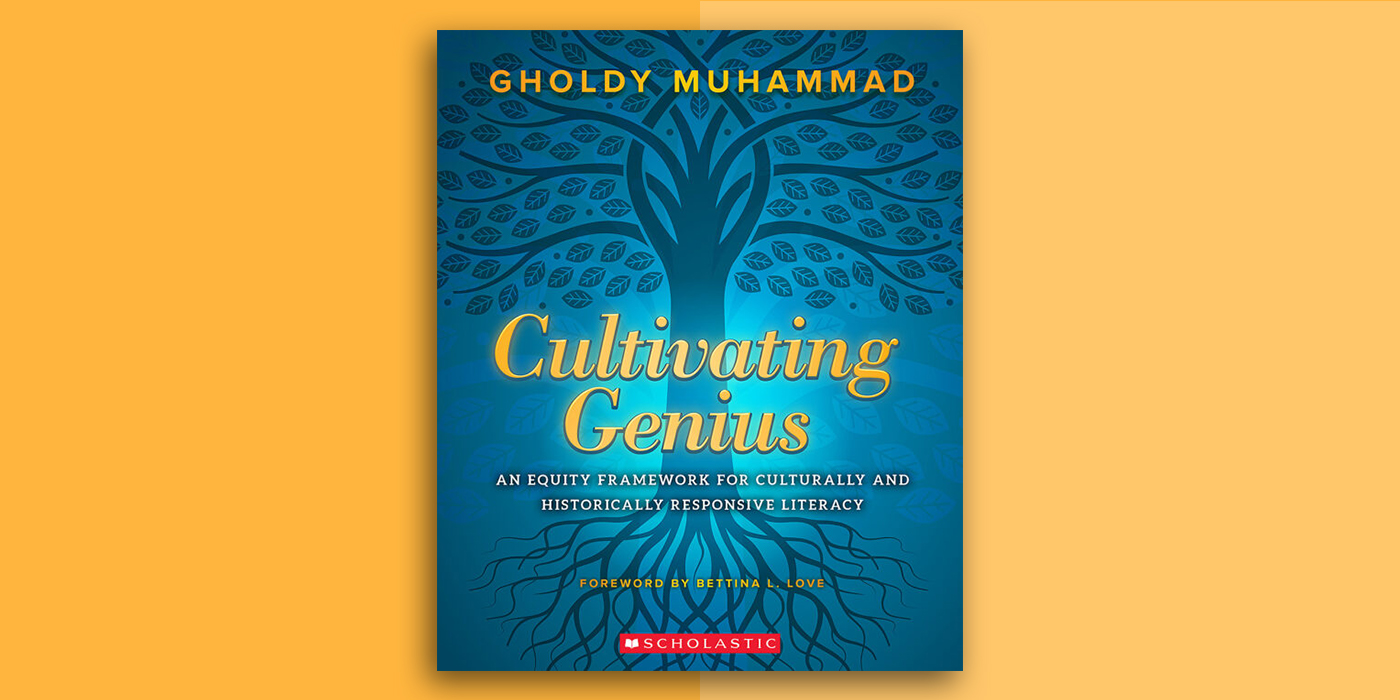In contemporary classrooms across the nation, teachers, school leaders, and teacher educators are still wrestling with ways to improve and elevate the literacy achievement of youth, especially Black children and other culturally and linguistically diverse populations.
If we aim to get it right with all youth, a productive starting point is to design teaching and learning to the group(s) of students who have been marginalized the most in society and within schools. Thus, we need frameworks that have been written by people of color and designed for children of color. My book, Cultivating Genius, provides a historically responsive literacy framework to help you redesign your learning goals and lesson plans. Just as importantly, it helps you select culturally and historically responsive texts to use in your teaching.
When selecting texts for the classroom, we need to consider the curriculum (what we teach) and the instruction (how we teach). The theories that frame teaching will impact both the curriculum and instruction. But the texts will enable the teaching of the curriculum.
If you rely exclusively on a textbook you have already fallen short in your curriculum and instruction. Textbooks are not typically written to help with expanded goals for learning. We have to ask what texts can help our students accomplish. Texts should drive cognitive goals (skills and intellect) as well as critical analysis (criticality) and sociocultural goals (identity).
As you consider texts for classroom use, I recommend you ask yourself these questions:
1. What is worthwhile for learning in my content area?
2. Why did I choose this text to teach with? (This reason should go beyond the text being in the mandated curriculum.)
3. How have my students contributed to the selection of texts for teaching and learning?
4. When the curriculum/text provided by the school is not enough, how will I respond as a critical and equitable educator?
5. How will this text advance my students’ learning of identity of themselves or other people/cultures?
6. How will this text advance my students’ learning of skills?
7. How will this text advance my students’ intellects? Is the text thought provoking?
8. How will this text advance my students’ criticality? How does the text respond to the social times of the society?
9. How do my selected texts agitate the oppressors in the world?
10. What multimodal texts am I teaching with? (image, sound, video, performance, etc.)
11. Is the content and language of the book culturally authentic?
12. What are the backgrounds of the writer and illustrator of the text? Is there a stronger author I could use to bring students closer to the content?
13. How are students reading across genres and different literature in social studies, math, and science?
14. Where do I find engaging and enabling texts?
15. How will I determine whether my students were engaged in the text I selected?
Your students must see themselves in the texts, including their cultures, identities, interests, experiences, desires, and future selves.
Texts should teach multiple ideologies and perspectives. You can find texts in public libraries, book lists online, and anthologies. Examples of selected texts may include cultural and African American anthologies, picture books, primary source documents, historic newspapers, poetry, laws, TED Talks, short stories, current news articles, art, photographs and pictures from visiting different cultural sites, and resistance writings penned by leading thinkers and activists.
To learn how to use culturally and historically responsive texts and lesson plans in your classroom and cultivate the genius within your students, you can purchase my book here. Plus, check out Unearthing Joy, the new sequel to Cultivating Genius.
About the author:
Dr. Gholnecsar “Gholdy” Muhammad earned her PhD in literacy, language, and culture at the University of Illinois at Chicago (UIC). Her research has focused on the social and historical foundations of literacy in Black communities and how literacy development can be reconceptualized in classrooms today. Dr. Muhammad is the recipient of multiple research awards from the National Council of Teachers of English and from Georgia State University and UIC. She’s an associate professor at Georgia State University, where she also serves as the director of the Urban Literacy Collaborative and Clinic. She works with teachers and youth across the U.S. and South Africa.
